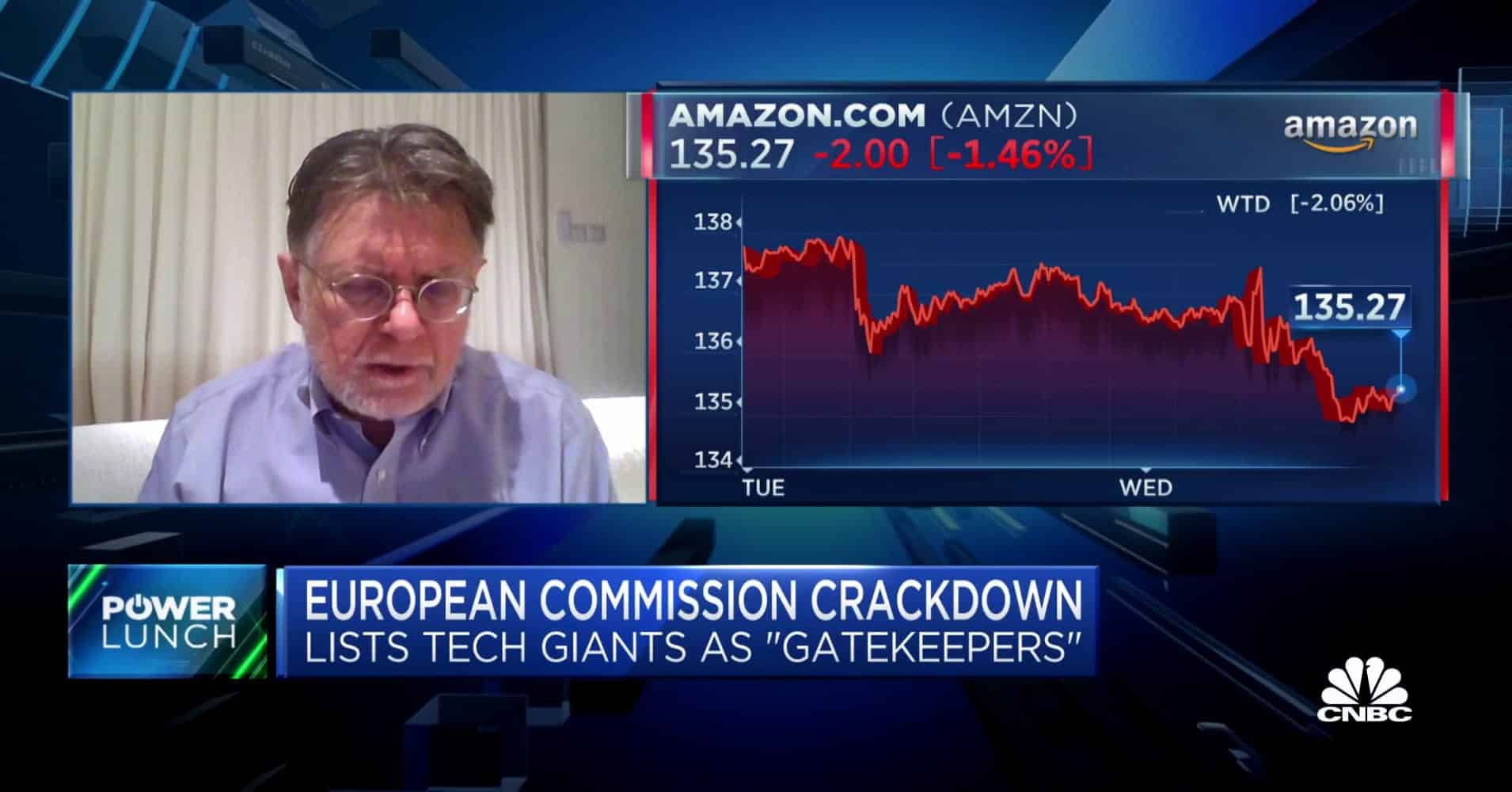Here’S How Google Plans to Fight the Doj
In response to the Department of Justice’s (DoJ) antitrust lawsuit, Google has outlined its plans for combating the legal action. These include leveraging its search algorithm in a way that provides users with more choice and reducing its reliance on exclusive contracts, thus creating a fairer digital landscape.
These measures aim to address concerns over Google’s alleged anti-competitive practices and ensure a competitive marketplace for both businesses and consumers. The company’s strategy focuses on strengthening its search engine and continuously refining it to deliver improved outcomes. By implementing these changes, Google aims to address the DoJ’s concerns while continuing to offer innovative and useful services to its users.
Understanding The Charges Against Google
Google is preparing to defend itself against the Department of Justice’s charges in a strategic battle. The tech giant is formulating its fight plan to counter the accusations and protect its interests.
Google, the tech giant that dominates the search engine market, is currently facing antitrust charges filed by the U. S. Department of Justice (DOJ). These charges allege that Google has engaged in anticompetitive behavior, cementing its dominance and stifling competition in the online search and advertising markets.
By understanding the charges against Google, we can gain insight into the magnitude of the allegations and the potential impact on Google’s future.
Providing An Overview Of The Antitrust Charges Filed By Doj:
- Google is accused of maintaining an unlawful monopoly in the search and search advertising markets, using exclusionary agreements and anticompetitive conduct.
- The allegations highlight Google’s alleged anticompetitive practices, including entering into exclusive agreements that restrict competition, disadvantaging competing search engines, and limiting the distribution of rival search engines.
- The charges involve Google’s dominance in search advertising, with accusations of imposing anticompetitive contractual restrictions on advertisers and publishers participating in Google’s advertising program.
- The DOJ claims that such conduct has harmed competition, stifled innovation, and deprived consumers of the benefits of free and open markets.
Examining The Allegations Against Google’S Practices:
- Google’s agreements with device manufacturers and mobile carriers are under scrutiny, as they allegedly restrict the pre-installation of competing search engines.
- The allegations also address Google’s alleged exclusionary conduct in the search engine market, including favoring its own search results and reducing the visibility of competitor websites.
- The allegations highlight concerns about Google’s control over online advertising, with claims of anticompetitive behavior such as imposing certain restrictions on advertisers and ad placements.
- The DOJ claims that Google’s practices have negatively impacted competition, limiting consumer choice, and hindering the potential for alternative search engines and advertising platforms to flourish.
The antitrust charges filed by the DOJ against Google are significant. By understanding the charges and allegations, we can grasp the potential implications for both Google and the broader online search and advertising industries. As the legal process unfolds, it remains to be seen how Google will defend itself against these allegations and how this case will reshape the competitive dynamics of the digital landscape.

Credit: washingtonmonthly.com
The Potential Impact On Google’S Business Model
Google’s battle against the Department of Justice could significantly impact its business model, forcing the tech giant to reassess its strategies and future plans. With potential changes looming, it remains to be seen how Google will navigate these challenges and maintain its position in the digital landscape.
Google’s recent clash with the Department of Justice (DoJ) has raised concerns about the potential impact on its business model. As one of the world’s largest tech giants, any changes to Google’s revenue streams and advertising practices could have far-reaching consequences.
Here’s a closer look at how these charges could affect Google:
Analyzing How The Charges Could Affect Google’S Revenue Streams:
- Search Advertising: Google’s search advertising has long been its main revenue stream. Any changes in regulations or practices could impact the way ads are displayed, potentially leading to a decrease in revenue.
- Display Advertising: Google’s display advertising platform allows businesses to reach a wide audience through various websites and apps. Increased regulation could require changes in how Google collects and uses data, impacting its display advertising capabilities.
- YouTube Advertising: YouTube, a subsidiary of Google, is a significant part of its business model. Advertisements displayed on YouTube videos generate substantial revenue for the company. Changes in regulations or practices could restrict the type or placement of ads, affecting this revenue stream.
Exploring The Potential Changes To Advertising Practices:
- Data Privacy: A focus on data privacy could result in stricter regulations regarding the collection and use of user data for advertising purposes. Google may need to alter its methods of data collection, impacting its ability to personalize advertisements and target specific audiences.
- Ad Placement: The charges against Google address its alleged anticompetitive practices, including manipulating the placement of ads to favor its own services. If these practices are found to be true, Google may be required to make changes in ad placement, potentially affecting revenue and competition in the market.
- Ad Transparency: Transparency in advertising practices is becoming increasingly important. Changes in regulations could require Google to provide more detailed information about how ads are served, improving accountability and ensuring fair competition.
Considering the significant role that Google plays in the digital advertising landscape, any changes resulting from the DoJ’s charges will undoubtedly have a profound impact on the company’s business model. As the situation continues to evolve, it will be crucial to closely monitor the developments and assess how Google navigates these potential changes while maintaining its position as a leader in the technology industry.
Google’S Arguments In Its Defense
Google is preparing to fight the Department of Justice’s antitrust lawsuit by arguing that its search engine promotes healthy digital competition and delivers valuable results to users. The company aims to defend the practices that have made it the dominant player in the online search market.
Unveiling Google’S Plan To Fight The Antitrust Charges
:
- Google asserts that it has not engaged in unlawful monopolistic behavior, emphasizing that the company operates in a highly competitive and dynamic industry.
- The search engine giant cites the presence of numerous alternatives such as Bing, Yahoo, and DuckDuckGo to demonstrate the existence of healthy competition in the market.
- According to Google, its success can be attributed to continuous innovation, user satisfaction, and the delivery of relevant and high-quality search results.
- It argues that its search algorithms are designed to prioritize user preferences and maintain trust and fairness in the search results.
- Google contends that its agreements with device manufacturers and browser providers are lawful and promote competition rather than restrict it.
- The company states that the agreements offer consumers a wide array of choices when it comes to accessing the internet and search engines.
- It maintains that these agreements are voluntary and mutually beneficial, enabling manufacturers to provide free software, while Google benefits from increased user traffic.
- Google argues that the pre-installation requirements are a common industry practice and that it faces substantial competition from rival search engines even on devices where it is the default option.
- Google asserts that its advertising ecosystem operates in a competitive landscape.
- It claims that advertisers have a multitude of choices, including social media platforms, television, and print media, which demonstrates the existence of alternatives to Google Ads.
- The company argues that its advertising services are designed to enhance user experience by delivering relevant and helpful ads while providing advertisers with valuable targeting options.
- Google emphasizes that the pricing and terms of its advertising services are determined through auction-based systems, ensuring fairness and competition.
- Google highlights the benefits it brings to consumers and businesses, including free access to its services and the creation of opportunities for small businesses.
- The company points out that its free services, such as Google Search, Google Maps, and Gmail, deliver immense value to users and have become essential tools in their daily lives.
- Google asserts that its advertising platforms have enabled many small businesses to reach a broader audience, grow, and compete in a highly digitalized economy.
- It emphasizes that its investments in research and development, as well as technological innovations, have driven economic growth and created jobs in the technology sector.
- Google commits to continued cooperation with regulators and ongoing dialogue to ensure adherence to competition laws.
- The company acknowledges the importance of competition and expresses willingness to make necessary changes in response to regulatory concerns.
- It states that it will work closely with authorities to address any potential issues while maintaining its commitment to delivering helpful and innovative products and services.
Google presents several key arguments in its defense against the antitrust charges. The company highlights its competitive industry, voluntary agreements with device manufacturers, a thriving advertising ecosystem, the benefits it offers to consumers and businesses, and its commitment to cooperation with regulators.
As this legal battle continues, the outcome will inevitably shape the landscape of the digital industry.
Strengthening Google’S Competitive Position
Google is actively preparing to defend itself against the Department of Justice (DOJ), strengthening its position through strategic plans and initiatives. The tech giant is determined to tackle the legal challenges head-on and maintain its competitive edge in the market.
Discussing Google’S Efforts To Maintain Its Dominance In The Market:
Google, as the dominant player in the search engine market, has been working tirelessly to solidify its position and stay ahead of competitors. Here are the strategies they have implemented to maintain their dominance:
- Continuous innovation: Google consistently introduces new features, updates its algorithms, and enhances user experience to stay at the forefront of the industry.
- Enhanced search results: Google focuses on providing users with the most relevant and reliable search results, ensuring that their search engine remains the go-to choice for internet users worldwide.
- Expansion into new markets: Google has expanded its reach beyond search engines and ventured into various industries like cloud computing, artificial intelligence, and self-driving cars, diversifying its offerings to stay competitive.
- Advanced technology: Google invests heavily in cutting-edge technology, including artificial intelligence and machine learning, to improve search accuracy and deliver a customized experience to its users.
- Strategic partnerships: Google forms strategic partnerships with major companies, acquiring valuable assets, and integrating them into their ecosystem to strengthen their competitive position.
- Brand recognition and trust: Google has built a strong brand image and enjoys a high level of trust among users, which plays a significant role in maintaining its market dominance.
- Data-driven decision-making: Google leverages its vast amount of user data to analyze trends, understand user behavior, and make informed decisions to stay ahead of the competition.
Considering these efforts, it’s evident that Google is determined to maintain its position as the top search engine and continue to dominate the market.
Collaborative Efforts With Tech Industry Stakeholders
Google plans to fight the DoJ through collaborative efforts with tech industry stakeholders. By joining forces and leveraging their combined expertise, they aim to combat any legal challenges and navigate the complex landscape of legal regulations effectively.
Google has been facing significant challenges in recent months as the Department of Justice (DOJ) carries out an investigation into potential antitrust violations. However, rather than facing these allegations alone, Google is taking a collaborative approach by joining forces with various tech industry partners and stakeholders.
In this section, we will outline the initiatives Google has undertaken to work hand in hand with these partners as they collectively navigate the hurdles presented by the DOJ’s inquiry.
Outlining Google’S Initiatives To Collaborate With Industry Partners:
- Formation of Alliances: Google has prioritized the establishment of alliances with industry partners to strengthen their position in countering the DOJ’s accusations. This strategic move enables Google to tap into the combined knowledge and expertise of like-minded technology companies, fostering a collaborative environment aimed at defending their respective positions.
- Advancing Shared Interests: Building upon alliances, Google is collaborating with industry partners with a shared vision to protect their interests and refute the DOJ’s allegations. Through joint efforts, these stakeholders are working towards establishing a unified front, thus increasing their chances of successfully navigating through the regulatory challenges they face.
- Coordinated Efforts: Google understands the importance of a coordinated response to effectively address the DOJ’s concerns. By collaborating with industry partners, Google can leverage combined resources, data, and insights, enabling them to mount a comprehensive defense and counteract any allegations put forth by the DOJ.
- Partnership for Innovation: Google recognizes the need to foster innovation within the tech industry while maintaining compliance with regulatory standards. Collaborative efforts with industry partners allow Google to engage in open dialogue, share best practices, and collectively find innovative solutions that address both the DOJ’s concerns and the ever-evolving needs of the industry.
- Advocacy and Representation: In order to effectively navigate the legal challenges posed by the DOJ, Google is working closely with industry stakeholders to advocate for fair and balanced outcomes. By representing the collective voice of the tech industry, Google aims to influence policy and regulatory decisions in a manner that aligns with the interests of all parties involved.
Google’s collaborative approach in partnering with industry stakeholders serves as a testament to their commitment to address the DOJ’s allegations. Through alliances, shared interests, coordinated efforts, innovation partnerships, and advocacy, Google is displaying a united front while actively working towards resolving the concerns raised by the DOJ.
By leveraging the collective strength of the tech industry, Google aims to ensure a fair and balanced outcome that fosters both innovation and compliance with regulatory standards.
Anticipating The Long-Term Implications
Google is gearing up for a battle against the Department of Justice (DoJ), with plans to counter their investigations and potential long-term implications. Stay updated on the search giant’s strategies for fighting back.
The DOJ vs. Google case has significant long-term implications not just for the search engine giant, but for the tech industry as a whole. As Google prepares to defend itself in this high-stakes legal battle, experts are examining the potential consequences and speculating on how the trial outcome could impact the future of the industry.
Examining the potential long-term consequences of the DOJ vs. Google case:
- Increased scrutiny on big tech: If the Department of Justice succeeds in its case against Google, it could set a precedent for more extensive antitrust investigations into other major tech companies. This could lead to increased regulatory oversight and potential breakups, reshaping the industry landscape.
- Impact on competition: A victory for the DOJ could open the doors for more competition in the search engine market. With Google’s dominant position challenged, rival companies may have a better chance at gaining market share and driving innovation.
- Changes to Google’s business model: In order to comply with potential legal mandates, Google might have to revamp its business practices. This could involve adjusting the way it displays search results, handling advertising, and monetizing user data. These changes could have far-reaching effects on the company’s revenue streams and user experience.
- Global repercussions: Google’s influence extends beyond U.S. Borders, and the outcome of this trial could have global implications. Other countries may take cues from the DOJ’s actions and initiate their own investigations into Google, posing further challenges for the company’s operations worldwide.
Speculating on the impact of the trial outcome on the tech industry:
- Leveling the playing field: A successful DOJ case against Google could lead to a more level playing field for smaller players in the tech industry. With enhanced regulatory scrutiny, it may be easier for startups and emerging companies to compete with the established giants.
- Innovation opportunities: The trial outcome could spur greater innovation as companies seek to differentiate themselves in an evolving industry. With potential disruptions to Google’s dominance, entrepreneurs and tech enthusiasts may come up with new and creative solutions to address user needs and preferences.
- Shifts in user behavior: Changes to Google’s business practices, as a result of the trial, may also impact user behavior. Users may start exploring alternative search engines or adjust their online activities in response to any alterations in search result presentation or data handling.
- Potential for new market entrants: A weakened Google could create opportunities for new players to enter the market. Startups and established companies previously hesitant to compete against Google may find it more feasible to carve out their own niche and tap into unexplored markets.
As the DOJ vs. Google case progresses, the potential long-term implications are still uncertain. However, experts are closely watching the trial’s outcome and its effects on Google, the tech industry, and users worldwide.
Implications For Users And Consumers
Google has revealed its plans to combat the DoJ’s charges, with potential implications for users and consumers. The tech giant aims to defend its search dominance while addressing concerns about antitrust violations, signaling lasting changes in the online landscape.
Google’s ongoing case with the Department of Justice (DOJ) has significant implications for users and consumers. Let’s discuss how this legal battle could potentially affect Google’s services and products, as well as the changes users may experience as a result:
Discussing How The Doj Case Could Affect Google’S Services And Products:
- Increased scrutiny: If the DOJ case unfolds unfavorably for Google, we may see an increase in regulatory scrutiny over the tech giant’s practices relating to competition and antitrust. This could force Google to make significant changes to its services and products.
- Algorithmic adjustments: In order to address the concerns raised by the DOJ, Google might be required to make adjustments to its search and advertising algorithms. These changes could impact how information is presented and prioritized on Google’s search engine.
- Impact on partnerships: Google has partnerships with various companies to provide its products and services. If the DOJ imposes restrictions or demands changes, it could potentially affect these collaborations and the overall user experience.
Detailing Potential Changes Users May Experience As A Result:
- Altered search results: Users may notice some changes to the search results they receive on Google. The algorithmic adjustments imposed by regulatory actions could potentially impact the ranking and visibility of certain websites or businesses.
- Advertisements and monetization: Google’s advertising platform generates significant revenue for the company. If the DOJ takes steps to regulate the advertising practices of Google, it could lead to changes in the way ads are displayed and monetized, affecting both advertisers and users.
- Data privacy and user control: The DOJ case may also shine a spotlight on data privacy practices and user control over personal information. Google might be required to enhance privacy measures and provide users with more control over their data, giving individuals a greater level of choice and transparency.
- Competitive landscape: Changes resulting from the DOJ case could potentially impact Google’s competitive position, opening up opportunities for alternative search engines and online platforms to gain market share. Users might find themselves exploring different options and experiencing a shift in the digital landscape.
It’s essential to note that at this stage, the implications for users and consumers are still unclear, as the DOJ case is ongoing. However, it’s crucial for Google users to stay informed about any potential changes that may arise from this legal battle.
As updates become available, we will continue to provide you with insights into how these developments could impact your digital experience.
Regulatory Landscape: Future Outlook
Google has devised strategies to combat the Department of Justice’s challenges, ensuring a transparent and fair regulatory landscape in the future. The company aims to defend its position in the market, providing users with an improved search experience while adhering to regulations.
Google’s battle with the Department of Justice (DOJ) has far-reaching implications, not just for the company but also for the broader regulatory landscape. As we delve into the future outlook of the regulatory environment, let’s analyze the potential impact of the DOJ case on tech regulation and antitrust laws.
Analyzing The Broader Implications For Tech Regulation And Antitrust Laws:
- Increased scrutiny: The DOJ case against Google signifies an intensified focus on tech giants and their dominance in various markets.
- Rise of competition: Stricter regulation could open doors for increased competition, fostering innovation and benefiting consumers.
- Balancing power: With significant market power, Google’s legal proceedings can shape the discourse around regulating monopolistic practices in the tech industry.
- Praised or criticized move: The outcome of this case could set a precedent for how regulators approach antitrust investigations, potentially leading to more regulatory actions against other tech giants.
Exploring How The Doj Case May Shape Future Policies And Regulations:
- Enhancing antitrust laws: Depending on the outcome, the DOJ’s actions may propel lawmakers to reassess and strengthen antitrust laws, ensuring a fair marketplace for all players.
- Reinforcing competition: The case could incentivize regulators to tighten rules around market competition, leading to increased options for users and more checks and balances for dominant players.
- Privacy concerns: The case might activate discussions around privacy and data collection practices, prompting regulators to refine existing laws or create new ones to safeguard user information.
- Global impact: As one of the largest tech companies worldwide, Google’s legal battle sets a precedent for other jurisdictions, potentially influencing regulatory approaches around the globe.
The future regulatory landscape in the tech industry is at a critical juncture. The outcome of the DOJ case against Google has the potential to reshape not only the policies and regulations governing tech giants but also the essence of competition and market dynamics.
As we witness these developments unfold, it is crucial for businesses, lawmakers, and consumers to stay informed and adapt to the evolving regulatory environment.
Frequently Asked Questions Of Here’S How Google Plans To Fight The Doj
What Actions Is Google Taking To Fight The Doj?
Google plans to fight the Department of Justice’s (DOJ) antitrust lawsuit by presenting a strong defense. They will argue that they have not engaged in anti-competitive practices and that their search engine algorithms provide fair and impartial results.
How Does Google Plan To Address The Allegations?
Google intends to fight the allegations by highlighting its commitment to providing users with the best search experience possible. They will emphasize that their algorithms are designed to deliver relevant and trustworthy information, and not to favor any specific website or organization.
Is Google Concerned About The Outcome Of The Lawsuit?
While Google takes the lawsuit seriously, they are confident in their legal position. They believe that their search practices are lawful and that they operate in the best interest of users. However, they will fully cooperate with the legal process and provide necessary evidence to support their case.
What Could Be The Consequences For Google If The Lawsuit Is Successful?
If the lawsuit is successful, Google could face various consequences. They might be required to change their search algorithms, pay substantial fines, or even be forced to split up their business operations. Additionally, a successful lawsuit could lead to increased scrutiny and regulation of Google’s practices by government agencies.
Conclusion
Google is determined to fight the Department of Justice’s (DOJ) accusations head-on. The search engine giant has outlined its plans to protect its search engine dominance and ensure fair competition. By strengthening its focus on user experience, Google aims to maintain its trustworthiness with users and prevent any potential bias in search results.
The company’s commitment to transparency and open communication will be vital in navigating this complex legal battle. Google is confident that its search algorithms are designed to provide the most relevant and useful results for users, regardless of any external influences.
With its vast resources and extensive research capabilities, Google has a strong foundation to defend against the DOJ’s allegations. The outcome of this legal fight will shape the future of Google’s search engine, and it remains to be seen how the case will unfold.
Nevertheless, Google’s determination to uphold its values and preserve its search engine’s integrity is clear.














Post Comment